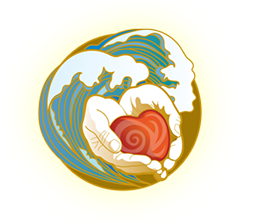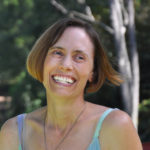 Tuesday of last week was one of my favorite days of the year: Global Oneness Day. Every year, October 24th is a day dedicated to celebrating the underlying reality of Oneness. Humanity’s Team, the non-profit that started Global Oneness Day, hosts an all-day online summit where they gather thought leaders in various panels to talk about not only waking up to our interconnectedness, but also ways to more fully live and embody this truth. As we embody Oneness, we can more effectively come together to implement the solutions needed to avoid global calamity and create a world of health, well-being, and flourishing for all.
Tuesday of last week was one of my favorite days of the year: Global Oneness Day. Every year, October 24th is a day dedicated to celebrating the underlying reality of Oneness. Humanity’s Team, the non-profit that started Global Oneness Day, hosts an all-day online summit where they gather thought leaders in various panels to talk about not only waking up to our interconnectedness, but also ways to more fully live and embody this truth. As we embody Oneness, we can more effectively come together to implement the solutions needed to avoid global calamity and create a world of health, well-being, and flourishing for all.
This year’s panels were all fabulous, but one stood out to me because it connected so many dots between the healing work I do with individuals and the healing work of societies and the world. One woman in particular impacted me the most, Dr. Mamphela Ramphele, who was on the “Restoring Real Community” panel. She is from South Africa, and the panel was discussing the concept of uBuntu, which can best be defined with this statement: “I Am Because You Are.” The concept became globally recognized after Archbishop Emeritus Desmond Tutu explained in 2008 that uBuntu means that a person cannot not exist in isolation, and that this is the essence of being human.
This is a beautiful concept. Unfortunately, uBuntu often remains just a concept and not fully lived or embodied for people who have been traumatized. Dr. Ramphele spoke of this in relation to transgenerational trauma, but what she shares here applies to any kind of trauma:
When people have been traumatized in a transgenerational sense, their brain function alters, and it requires healing. That healing is not [only] about psychiatry or taking drugs. It’s about reconnecting the brokenness. Without that reconnection, human beings find it extremely difficult to have empathy, which is at the heart of uBuntu: “I Am Because You Are.” You don’t only know uBuntu — you feel it. And if there is brokenness, you lose your capacity to feel it. Humiliation is the most traumatic bearer of pain. If we don’t heal that humiliation, then we have people in society who may speak the language of uBuntu, but they don’t feel. So there is a big gap between what people say they are and what they actually demonstrate.
uBuntu compels us to forgive — not because we feel sorry for the wrong-doer, but because without forgiveness, the brokenness will remain. To the extent that the person who humiliated me continues in that practice, that person is further damaged. I need to sit down with the person and hold hands — physically or spiritually — and say, “I forgive you, because you and I need to reconnect.”
That is why we do the work of healing trauma. She says it so beautifully and so poignantly that there is almost nothing more to say. Trauma, whether transgenerational or not, dramatically affects our capacity to be in healthy relationship. It affects our ability to feel connected both to ourselves and to others. To say we are interconnected is all well and good, but if we cannot feel it at an embodied level, the concept alone is almost completely useless. Needless to say, societies are built upon relationships. The health of a society is built upon the health of the relationships between the members of that society. Trauma happens in relationship, and it must be healed in relationship.
 Dr. Ramphele speaks of forgiveness as the means of healing trauma. I have found in my own journey that forgiveness is key, but it is not all that is required. Healing the brokenness also requires a certain kind of grounded, compassionate support from others, a willingness on our part to trust and accept that support, and the slow work of building our capacity to be fully present with our experiences in the here and now. Compassionate presence is what allows for integration and healing of the brokenness caused by trauma.
Dr. Ramphele speaks of forgiveness as the means of healing trauma. I have found in my own journey that forgiveness is key, but it is not all that is required. Healing the brokenness also requires a certain kind of grounded, compassionate support from others, a willingness on our part to trust and accept that support, and the slow work of building our capacity to be fully present with our experiences in the here and now. Compassionate presence is what allows for integration and healing of the brokenness caused by trauma.
I am grateful for people like Dr. Ramphele who are so eloquently and beautifully sharing the message of what it takes to embody Oneness rather than simply know it as an intellectual concept. We must heal the brokenness inside and in our relationships to truly live uBuntu.
My prayer is that we all have the courage to turn toward the parts of ourselves that have been hurt and embrace them with loving presence, so that we may know, embody, and feel the truth of our deep and unbreakable connection. We can do it if we do it together.
Visit Penny’s website to learn more about her and her offerings: http://pennyheiple.com

